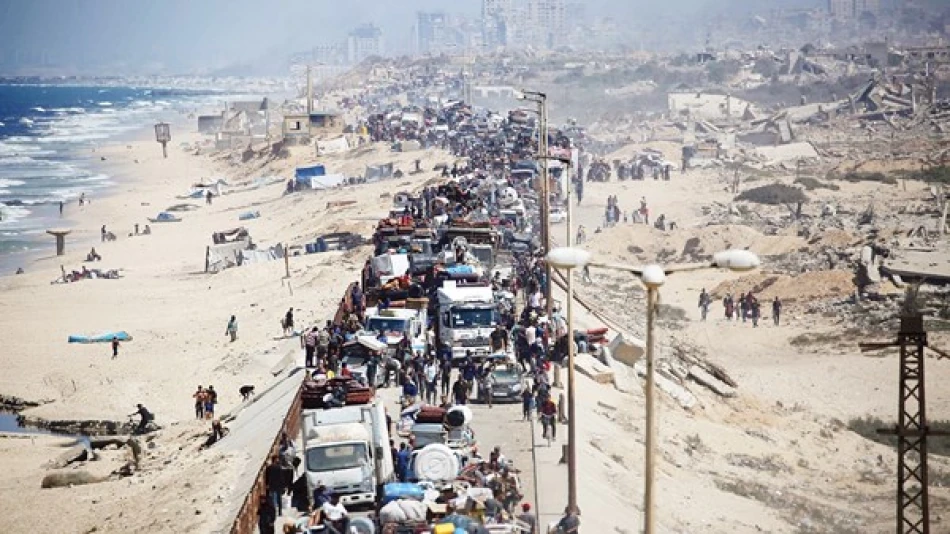
Gaza War Enters Third Year Amid Devastating Humanitarian Crisis
The Israeli war on Gaza enters its third year today with catastrophic humanitarian consequences that have reshaped the territory. Government data from Gaza shows 90% of the enclave lies in ruins, while Israeli forces control 80% of its territory. The human cost includes over 76,000 Palestinians killed or missing, with entire families wiped out and basic infrastructure destroyed.
Gaza's Government Media Office released stark figures showing the scale of destruction after two years of conflict. More than 200,000 tons of explosives have been dropped on the territory since October 7, 2023. The bombardment has left 38 hospitals destroyed or out of service, while 95% of schools suffered partial or complete damage.
The casualty numbers paint a grim picture. Of the 76,639 Palestinians killed or missing, about 9,500 remain unaccounted for. Another 169,583 people were wounded, including 4,800 amputations and 1,200 cases of paralysis. The media office reported that 2,700 families were completely eliminated.
Beyond the immediate war casualties, the humanitarian crisis has deepened. Siege conditions and supply shortages led to over 12,000 miscarriages due to lack of food and medical care. Some 460 Palestinians died from hunger and malnutrition as aid deliveries remained limited.
The destruction extends far beyond modern infrastructure. Israeli strikes have damaged or destroyed 208 of Gaza's 325 archaeological and heritage sites. These locations, some dating back thousands of years, represented the cultural memory of the Palestinian territory.
Religious life has also been targeted. Israeli attacks killed 233 preachers, clerics, and imams across different areas of Gaza, according to the government media office director.
Israel has paid its own price for the extended conflict. The Israeli Defense Ministry announced that 1,152 military personnel and police officers have been killed since October 7, 2023. This includes soldiers, police, internal security service members, special operations forces, and emergency response teams who fought in Gaza, Lebanon, and the occupied West Bank.
The war began after Hamas-led attacks on October 7 that killed about 1,200 Israelis and took around 240 hostages. Israel's response has now become one of the most destructive military campaigns in recent history, with international observers raising concerns about the scale of civilian casualties and infrastructure damage.
The conflict has created one of the world's worst humanitarian disasters, with hundreds of thousands of Palestinians displaced within Gaza's shrinking safe zones. International aid organizations struggle to deliver supplies as fighting continues and border crossings remain heavily restricted.
Most Viewed News

 Layla Al Mansoori
Layla Al Mansoori






